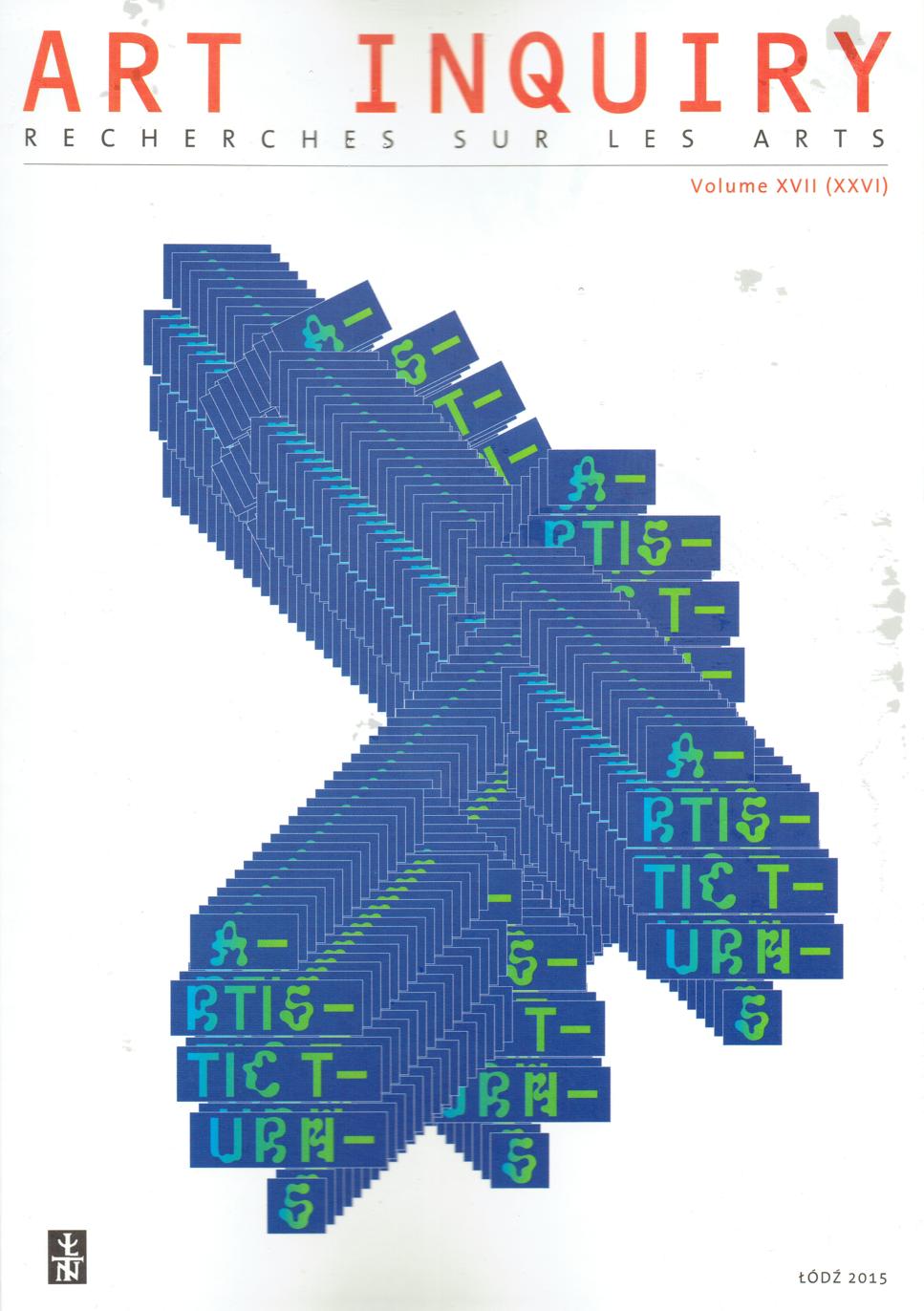Aesthetics and the political turn in art
Aesthetics and the political turn in art
Author(s): Rafał CzekajSubject(s): Philosophy, Fine Arts / Performing Arts
Published by: Łódzkie Towarzystwo Naukowe
Keywords: Jacques Rancière; Zoon Politikon; Friedrich Schiller; Immanuel Kant; Berlin Biennale; Artur Żmijewski; socially engaged art
Summary/Abstract: It was observed as early as the mid-twentieth century that aesthetics as a philosophical theory of art differs from its objects. The products of contemporary artistic practice go beyond the horizon of traditional aesthetics. Artists are involved increasingly often and on a wide scale in the actions aimed at transforming and constructing the common space. In the face of such activities as took place, for example, as part of the 7th Berlin Biennale for Contemporary Art in 2012, traditional aesthetics seems to be helpless. That is why, if art is to continue to be the focus of aesthetic investigations, it must, as it were, redefine itself. Jacques Rancière is one of the authors who have outlined the new horizon of aesthetics. In my paper I will briefly present his conception. It provides some theoretical tools which I will use for the description and interpretation of some selected examples of contemporary socially engaged artistic practices. I will show that his distinction of the „aesthetic regime“ of the interpretation of art reveals the competence that combines all artistic practices, past and present, into one concept of art: art as politics. The foundations for setting such perspective were already provided by Schiller and Kant – the classics of modern philosophical aesthetics.
Journal: Art Inquiry
- Issue Year: 2015
- Issue No: 17
- Page Range: 83-92
- Page Count: 10
- Language: English

